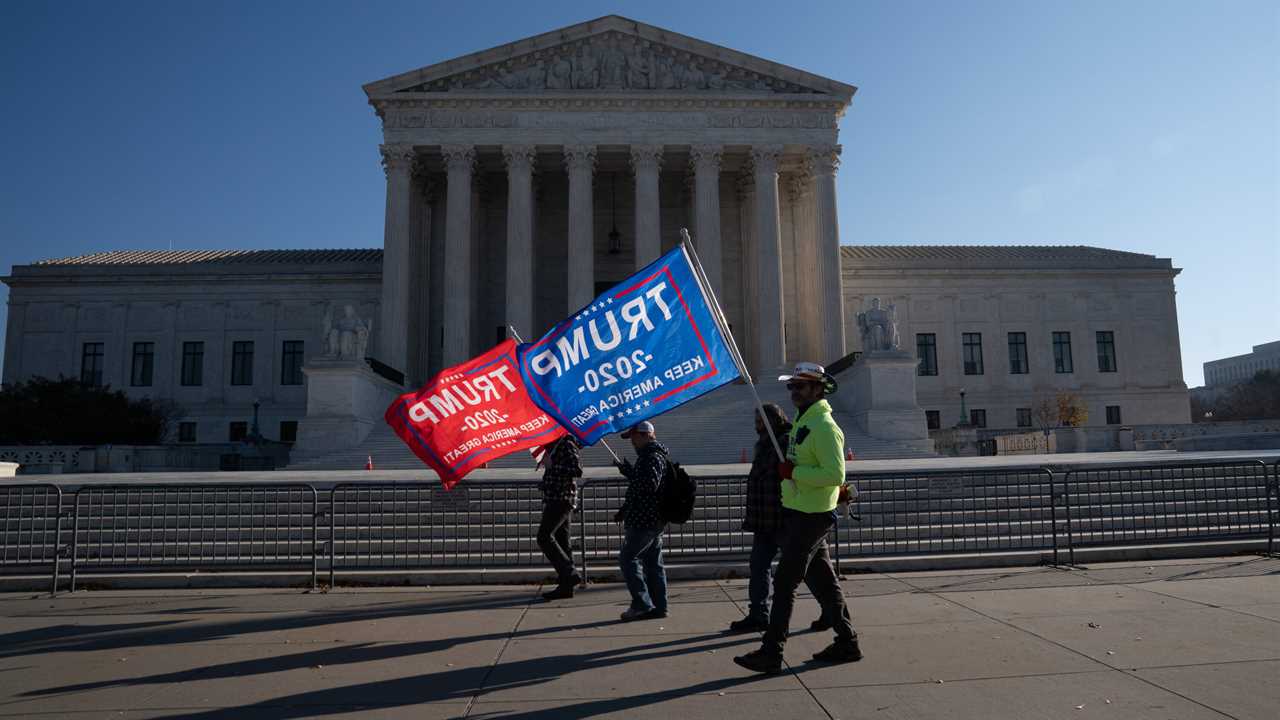
The justices of the Supreme Court met Friday morning, by telephone, for their usual private conference to discuss which cases they might add to their docket.
They almost certainly discussed an extraordinary lawsuit that Texas has sought to file directly in the court against four battleground states — Georgia, Michigan, Pennsylvania and Wisconsin — seeking to overturn the results of the presidential election. The court could act on that request at any time and may well issue an order on Friday.
Texas filed replies on Friday morning to a set of blistering briefs from the four states that had called its request an affront to democracy and the rule of law. Texas asked the court to hear its case and, in the meantime, to bar the four states “from certifying presidential electors and from having such electors vote in the Electoral College.”
Texas’ attorney general, Ken Paxton, pleaded in an appearance on Fox News on Friday that the Supreme Court should “at least give us a chance to have our case heard.”
“The Constitution was set up to give us an opportunity, instead of fighting each other with guns, to go to court and appropriately settle it civilly,” Mr. Paxton said, in response to criticism from the defendant states that the suit was a “seditious abuse” of the courts.
Mr. Paxton has fallen under legal scrutiny for his actions as Texas’ attorney general after top aides accused him in a whistle-blower-style letter of committing bribery, abuse of office and other “potential criminal offenses.”
Legal experts said Texas’ lawsuit was filled with procedural and substantive shortcomings and that the Supreme Court was unlikely to have any appetite for wading into it.
On Tuesday, the court rejected a more modest request from Pennsylvania Republicans to overturn the election results in that state.
The two sides in the Texas case have attracted more than a dozen supporting briefs and requests to intervene, from President Trump, from coalitions of red and blue states, from politicians and from scholars. Among them was a brief filed by at least 120 House Republicans, including Representative Kevin McCarthy of California, the minority leader, who claimed that the election — the same one in which they were all re-elected — had been “riddled with an unprecedented number of serious allegations of fraud and irregularities.”
More than a dozen Republican state attorneys general expressed similar support on Wednesday.
But some 20 states led by Democrats, in their own supporting brief, urged the court “to reject Texas’s last-minute attempt to throw out the results of an election decided by the people and securely overseen and certified by its sister states.”






